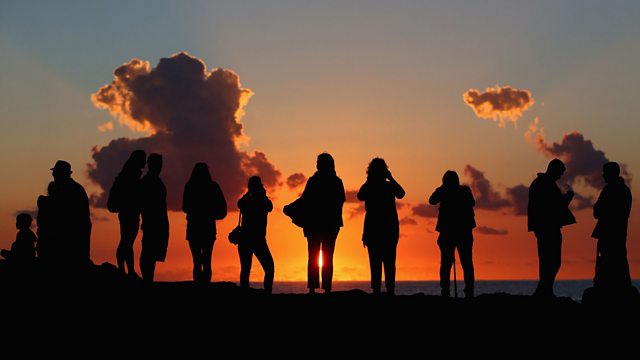John Studzinski - 21/05/2025
Thought for the Day
The world we live in is filled with noise, much of it generated by remote communication. But if you really want to listen to somebody, a mobile phone just won’t do: you need to be in the same room.
On Sunday, I was in the same room as Pope Leo. It was an enormous room – St Peter’s Basilica – and I was some 50 feet away from him. But there I was, listening to the successor to St Peter himself as he said: “If the rock is Christ, Peter must shepherd the flock without ever yielding to the temptation to be an autocrat.”
Perhaps surprisingly, the late Pope Francis – for all his warmth and humility, and his emphasis on a synodal church – was sometimes times not averse to imposing his wisdom. Pope Leo, for his part, has already given proof of a consultative approach to leadership. As the Italian newspaper La Stampa observed, in forming the new Curia to administer the Holy See, he has favoured individual interviews, targeted questions and listening.
Listening would have been of the essence in his years as a grassroots Augustinian missionary in Peru, living with people who were poor, marginalised or in danger, learning to understand their experiences and needs, and helping them to realise their aspirations.
In our daily lives, we must remain conscious of the need to listen. It could be that social media has made us all too concerned about having our say. Or perhaps we are too busy trying to formulate a smart response. But, as the Book of Proverbs warn us, “To answer before listening – that is folly and shame.” Our priority should be to listen with an open mind, without judging, so that we can understand, empathise and find a balanced perspective – and learn a great deal along the way.
There is an art to listening, and it’s an art that can hold transformative power.
My friend Erling Kagge, the Norwegian explorer, has written extensively about listening, and about the way it works with silence to deepen our understanding of ourselves and others. On a larger and more momentous scale, listening was at the heart of the Truth and Reconciliation Commission, chaired by Archbishop Desmond Tutu in South Africa in the 1990s: in providing a space for both victims and perpetrators to make themselves heard, it set an example for the world.
Through listening we can honour the dignity of every person. So let us pray that we listen actively, use silence wisely, and go on to communicate with empathy and purpose, strengthening relationships and communities. Listening can give us the wherewithal to create a world that is both more compassionate and more cohesive.
Duration:
This clip is from
More clips from Thought for the Day
-
![]()
Rt Rev Nick Baines - 24/10/2025
Duration: 02:50
-
![]()
Rev Dr Michael Banner - 23/10/2025
Duration: 03:05
-
![]()
Rev Canon Dr Jennifer Smith - 22/10/2025
Duration: 03:02
-
![]()
Akhandadhi Das - 21/10/2025
Duration: 03:05






